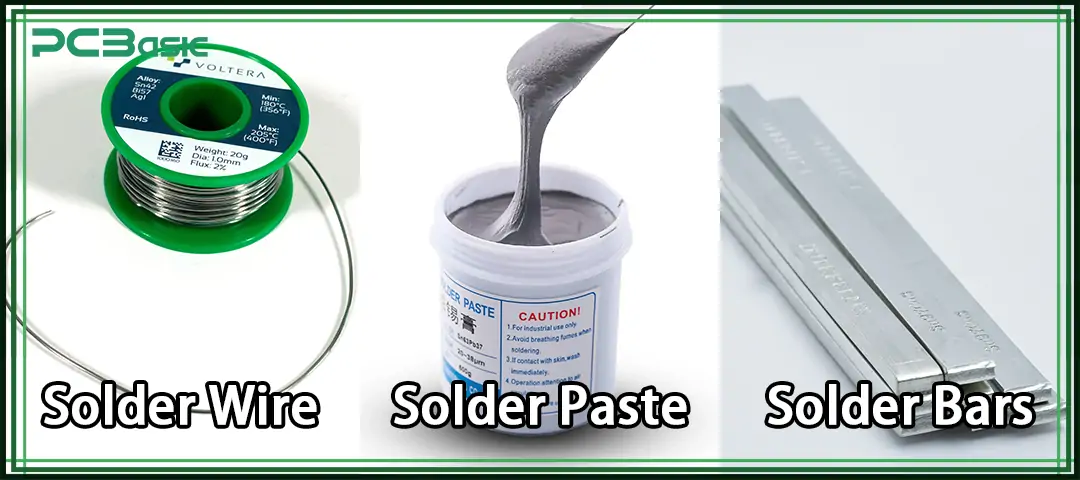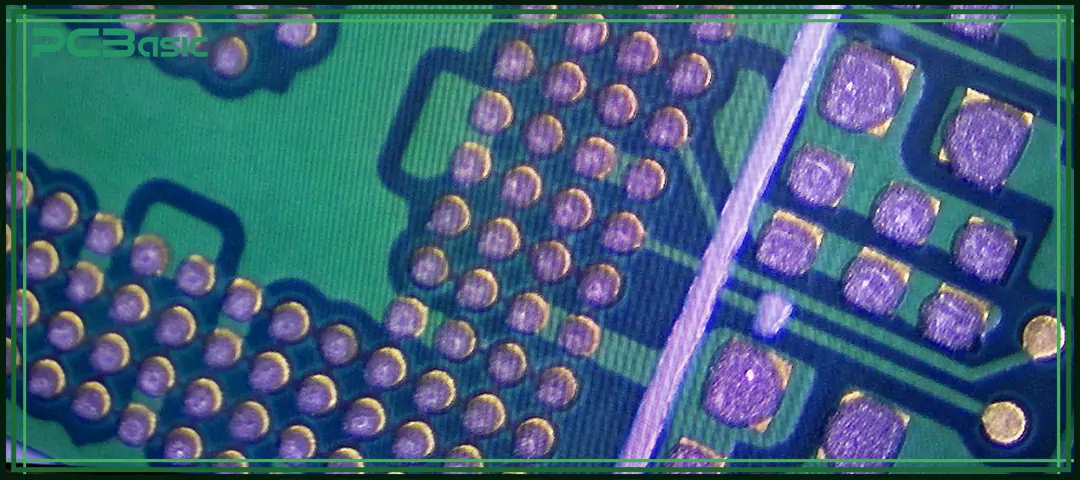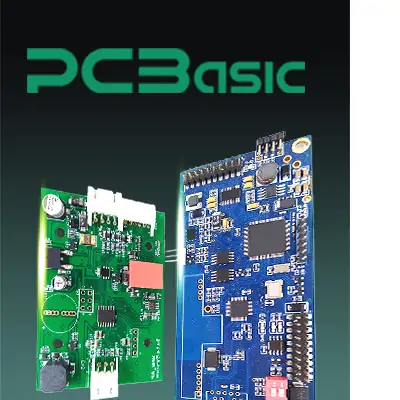Global high-mix volume high-speed PCBA manufacturer
9:00 -18:00, Mon. - Fri. (GMT+8)
9:00 -12:00, Sat. (GMT+8)
(Except Chinese public holidays)
Global high-mix volume high-speed PCBA manufacturer
9:00 -18:00, Mon. - Fri. (GMT+8)
9:00 -12:00, Sat. (GMT+8)
(Except Chinese public holidays)
HomePage > Blog > Knowledge Base > Best Solder for Electronics – Complete Guide to Choosing the Right Solder
All kinds of electronic soldering projects, big and small, cannot do without electronic solder. It may seem ordinary, but it is an indispensable material in the process of electronic assembly. The quality and type of solder directly determine whether the solder joints are firm, whether the electrical conductivity is stable, and whether the circuit can remain reliable over a long period of use.
For beginners, the question often arises: which solder is best for electronics? Should one choose traditional lead solder, which is easier to handle, or lead-free solder that is more environmentally friendly? On some occasions, it is also recommended to use rosin core solder for electronics with flux, or silver-bearing solder with stronger performance and better electrical conductivity. Different solders have different characteristics and correspond to different application requirements.
This article will help you to understand various common types of solder, clearly compare their advantages and disadvantages, and tell you, in actual scenarios, whether in repair, DIY or professional production, how to choose electronic solder for the best effect.
Electronic solder is a fusible metal alloy used to firmly attach electronic components to a Printed Circuit Board (PCB). Unlike glue, solder not only holds parts together but also conducts electricity between them. When heated, the solder melts and flows around the leads, pads or terminals of the components. After cooling, it hardens and forms a strong and reliable solder joint.
In actual electronics assembly, we often see different forms of electronic solder:

Solder Wire
Solder wire for electronics is the most common one, usually wound on a spool and may have a flux core or not. When heated, it will melt rapidly and fill the area that needs to be soldered. Electrical solder wire is particularly suitable for through-hole soldering, electronic repair and small DIY projects.
Solder Paste
Solder paste is mainly used in Surface Mount Technology (SMT). It is a paste made by mixing powdered solder alloy powder and flux. Usually, the solder paste is applied to the solder pads through a stencil, then the components are placed on them, and finally heated in a reflow oven to melt the solder and fix the components.
Solder Bars
Solder bars are solid sticks of solder alloy, often used in wave soldering or dip soldering machines. This kind of solder is generally not used among individual enthusiasts, but it is indispensable in mass production.
Traditional electrical solder is usually lead-based, with common ratios of 60/40 (60% tin, 40% lead) or 63/37 (eutectic alloys). Its melting point is relatively low, approximately between 183°C and 190°C, making it very easy to operate, and the surface of the solder joints is also bright and smooth. However, lead-based solder paste is harmful to human health and the environment and does not meet the RoHS environmental protection standards.
With the implementation of environmental regulations such as RoHS, lead-free solder has become the standard in professional manufacturing. The most common alloy is SAC305 (tin-silver-copper alloy). This kind of solder is more environmentally friendly, complies with the RoHS standard, and provides long-lasting and high-reliability solder joints. However, its melting point is relatively high, approximately 217°C, and it has stricter requirements for temperature control.
The characteristic of rosin core solder for electronics is that the solder wire has its own flux inside, so no additional flux is required. This design makes soldering more convenient, keeps the solder joints cleaner and less prone to oxidation, making it highly suitable for daily maintenance work. However, smoke will be produced during the soldering process. It is recommended to use it in conjunction with exhaust equipment.
Adding silver to solder alloys can enhance the strength and electrical conductivity of solder joints. Common formulas include Sn-Ag or Sn-Ag-Cu. The advantages of silver-bearing solder are its firm solder joints and good electrical conductivity, which make it reliable in high-performance circuits. However, this type of solder is relatively expensive and has a higher melting point than ordinary solder, generally around 221°C.
In addition to the common types of solder, there are also some special types, such as:
• Low-Melt Solder (Sn-Bi): Melts below 150°C, useful for repairing sensitive parts.
• Plumbing Solder: Not recommended—it often lacks flux and may include corrosive alloys unsuitable for electronics.
• Specialized Solders: Indium-based or gold-based for aerospace, medical, and defense.

When we are choosing the best solder for electronics, we should decide based on actual needs:
• Ease of Use: Leaded solder has a low melting point and is easy to solder, making it the easiest for beginners to get started with.
• Compliance: Lead-free solder complies with environmental regulations and is an essential choice for both professional projects and mass production.
• Convenience: Rosin core solder for electronics comes with its own flux and does not require additional flux, making the operation more convenient.
• Performance: Silver-bearing solder joints are stronger and have better electrical conductivity, making them suitable for circuits with high-quality requirements.
• Delicate Repair: Low-melting-point solder has a low melting point and can protect heat-sensitive components.
All in all, no single solder can meet all situations. The specific choice should be based on the application.

Time is money in your projects – and PCBasic gets it. PCBasic is a PCB assembly company that delivers fast, flawless results every time. Our comprehensive PCB assembly services include expert engineering support at every step, ensuring top quality in every board. As a leading PCB assembly manufacturer, we provide a one-stop solution that streamlines your supply chain. Partner with our advanced PCB prototype factory for quick turnarounds and superior results you can trust.
There are several key factors to consider when choosing the best solder for electronics. The first is composition, such as the ratio of tin-to-lead, whether it contains silver, or whether special alloys are used. The second is the melting point of the solder. It will directly affect the difficulty of soldering and the safety of components during the soldering process.
Different flux types are also very important. It can be rosin, no-clean or water-soluble, and the choice should be made according to specific requirements. At the same time, it is also necessary to see whether it meets environmental compliance, such as choosing leaded solder or lead-free solder to comply with RoHS and environmental regulations.
The actual application scenarios are also crucial, such as whether it is for daily maintenance or mass production, and whether it is for enthusiasts or professional engineering projects. The diameter of the solder wire also affects the usage effect. Thin solder wire is suitable for small SMD pads, while thicker solder wire is more suitable for larger solder joints.
Finally, a balance must be struck between cost and performance. For example, silver alloys are more expensive but more reliable.
These factors combined can help beginners and professionals determine which type of solder is most suitable for their project.
|
Solder Type |
Composition |
Melting Point |
Pros |
Cons |
Best Use Case |
|
Lead-Based |
60/40, 63/37 |
~183–190°C |
Easy to use, smooth joints |
Toxic, non-RoHS |
Hobby, repair |
|
Lead-Free |
SAC305 (Sn-Ag-Cu) |
~217°C |
RoHS compliant, durable |
Harder for beginners |
Professional PCB assembly |
|
Rosin-Core |
Varies with alloy |
Same as alloy |
Built-in flux, clean joints |
Fume extraction needed |
General electronics soldering |
|
Silver-Bearing |
Sn-Ag or Sn-Ag-Cu |
~221°C |
Strong, conductive |
Expensive |
High-end circuits |
|
Low-Melt |
Sn-Bi |
<150°C |
Safe for sensitive parts |
Weak joints |
Repairing delicate components |
The best solder for electronics mainly depends on the type of project, whether it needs to comply with environmental standards, and the soldering proficiency of the operator. For beginners, wire electrical solder with rosin core is the best choice and easy to handle. In modern electronic manufacturing, lead-free solder has become the industry standard. If you are more experienced, in some special cases, silver-bearing solder or low-melt solder may be the best solder for circuit boards.
Finally, when choosing which solder to use, it is necessary to strike a proper balance among performance, cost and operational convenience. As long as you understand the characteristics of various types of solder, you can clearly determine which kind of solder is suitable for electronics and ensure that the solder joints are firm, reliable and of stable quality.
Q1: What’s the best solder wire for electronics beginners?
Rosin core leaded solder (60/40) is often the best solder for electronics beginners because it flows easily and ensures clean joints.
Q2: Is lead-free solder better than leaded solder?
For compliance and safety, yes—lead-free solder is better. But for ease of use and hobby projects, leaded solder may still feel like the best solder for electronics.
Q3: Can I use plumbing solder on electronics?
No. Plumbing solder is not designed as electronic solder and may damage circuits. Always use proper solder for electronics.
Q4: What’s the difference between electrical solder and electronic solder?
They are often used interchangeably, but electrical solder may also refer to larger-gauge solder used for wires, while electronic solder is optimized for delicate circuit board soldering.
Q5: Which types of solder wire are best for circuit boards?
The best solder for circuit boards is typically rosin core solder wire for electronics or best lead-free solder (SAC305) in professional assembly.

Assembly Enquiry
Instant Quote
Phone contact

+86-755-27218592
In addition, we've prepared a Help Center. We recommend checking it before reaching out, as your question and its answer may already be clearly explained there.
Wechat Support

In addition, we've prepared a Help Center. We recommend checking it before reaching out, as your question and its answer may already be clearly explained there.
WhatsApp Support

In addition, we've prepared a Help Center. We recommend checking it before reaching out, as your question and its answer may already be clearly explained there.
